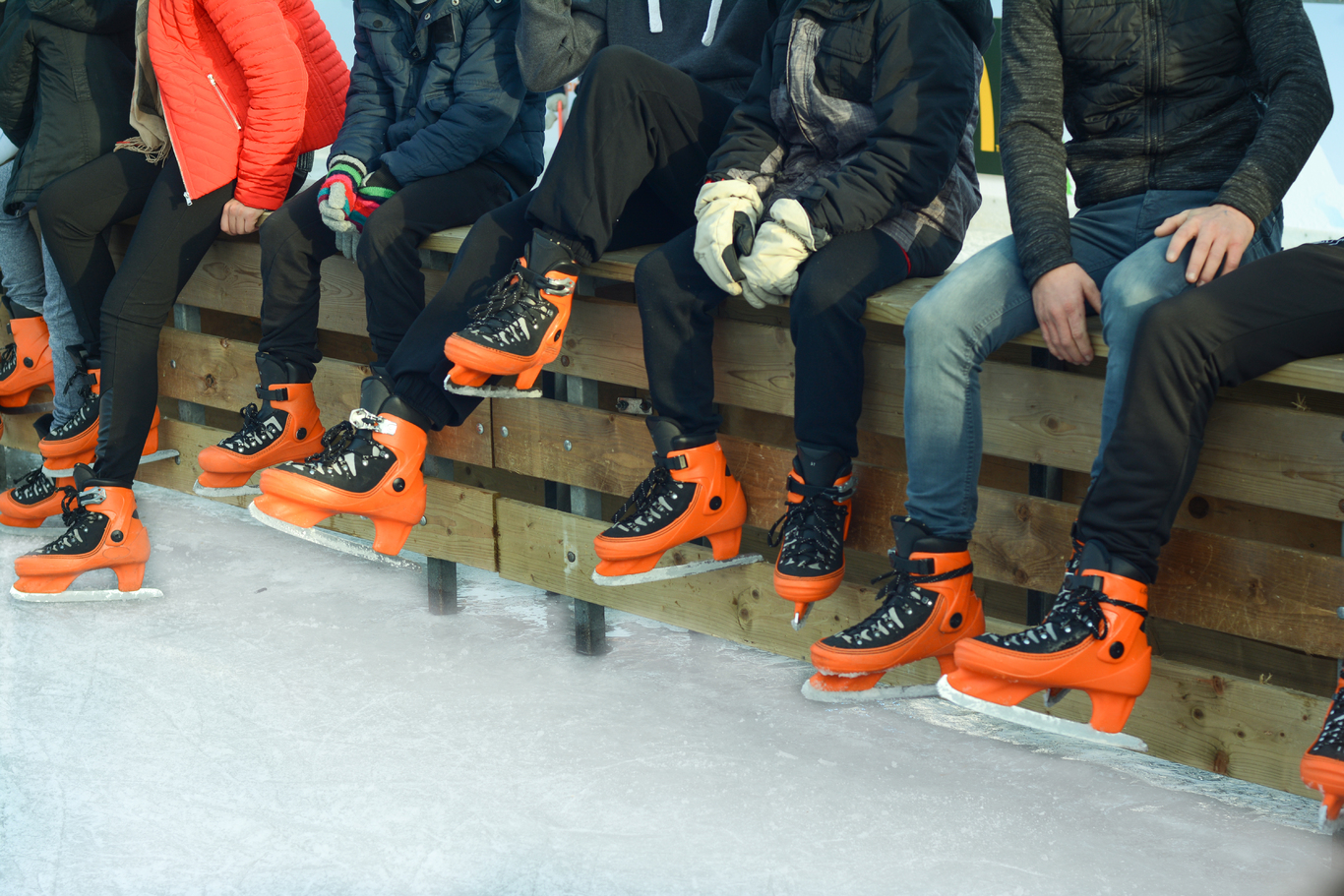The very seasonal business of ice rinks - 'I'd rather this than work for someone else'
Bill Cremin from Cool Running Events talks about the rewards and challenges of running a seasonal business.
BILL CREMIN DOESN’T sleep very soundly during the winter months.
As managing director of Cool Running Events – an events management firm that organises Christmas-themed ice rinks in Dublin and Cork – he spends December worrying the weather might be getting a little too wintry.
“We can function in all sorts of weather, pretty much,” he told Fora.
“The problem that really affects the business is when people can’t travel. For example, last year we had major flooding in Cork. In previous years, we’ve had situations where we’ve been snowed in.
“Thankfully it’s a rare enough occurrence, but when it does happen, it has major knock-on effects to businesses such as ourselves.
“We want no ice and no snow – those are the two biggest worries that we have.”
 Bill Cremin
Bill Cremin
Planning
Seasonal businesses, by their nature, require an enormous amount of planning, often taking the guts of a year of work to put on an attraction that runs for only a few months.
Cool Running operates three ice rinks – Cork On Ice, Ice Skating Blanchardstown and iSkate@RDS – and only has a two-week window to turn those vacant sites into fully operational ice rinks, amenities and all.
“At the start, there is nothing in terms of services,” Cremin explained. “We bring in all of the infrastructure ourselves, from the power, chilling, toilets, broadband. All that starts from zero.
“We have to build a structure of about 2,500 sq m. We have to build a 1,000 sq m ice rink. We have to put in 1,000 pairs of ice skates. We’ve got to put a cafe in. We’ve got to light it. All of that has got to happen in a planned way.”
At the same time, the firm “tries not to over-plan”, because it takes away from other parts of the business.
“We invested in another seasonal business, which depending on your point of view, either doubles our problems or doubles our opportunities,” he said, referring to the Nightmare Realm, a Halloween attraction that has been operating in Cork for the last decade and which Cool Running also brought to the RDS this year.
“It was very well-received, but it meant we had practically no time between the finishing of Nightmare Realm and moving on-site with the Christmas events,” Cremin said.
“It was very challenging – but that is the nature of the beast.”
Unlike a number of ice-rink operators around the UK and Ireland, Cool Running doesn’t receive a subsidy from local authorities.
The business relies heavily on ticket sales, which is why the firm operates its own ticketing system and customer support. To secure bookings, the firm offers a discount to those who book in advance online.
“That way, we can roster staff correctly, and we know, irrespective of the weather, people are going to make the effort to come because they’ve already paid for it.”
This year has fared well so far, Cremin said, and provided there isn’t a major weather event, sales are expected to be up around 8% on last year.
School holidays
The three ice rinks opened in early November and the Dublin ones will finish up in mid-January.
The rink in Cork stays open until the end of January because “we have a very active ice hockey team and figure staking team that use it when it’s not open to the public”, helping to drive post-holiday business.
The peak trading period is from St Stephen’s Day until the end of the school holidays.
This year looks promising, Cremin said, “because the school holiday is longer than usual”, with most children not back in class until 9 January.

Each rink can cater for up to 300 people per 50-minute session, but until the Christmas holidays the venues generally operate at below-50% capacity.
“Full capacity is achieved on a very small number of sessions – the ‘peak peak’ – those sessions from 2pm to 5pm on a dry, sunny holiday afternoon,” Cremin said.
The seasonal ice rink business is a competitive space, with around 13 temporary facilities operating around the country this year.
“The challenge is to keep it going year after year,” Cremin. “There are significant set-up costs. Back in the early days for us, all the equipment was rented form the UK at a huge cost. Over the years, we’ve purchased all that ourselves. That insulates us a little bit.”
The profit margin is “very much dependent on our ability to drive volume”.
According to its most recently filed accounts, the firm made a profit of €140,000 in the 12 months ending 31 March 2015, pushing accumulated profits over €383,000.
The rinks are located near shopping centres, which have high footfall, but there is still a lot of money pumped into marketing each facility.

Staff
One of the peculiarities of running a seasonal business is dealing with dramatic changes in staff numbers.
There is a core team of six people who work year-round, with an extra 120 seasonal staff coming on board from November.
“You need systems in place to make sure everybody gets paid on time, that you’ve got the correct bank details for everyone, that everybody has got their contracts,” Cremin explained.
“That’s a pretty big challenge. In a ‘normal’ business, you do this once and until that person leaves, you don’t really have to do it again. We have to do it pretty much twice a year per event.”
Rewards
Despite its challenges, Cremin said one of the biggest rewards of running a seasonal business is that there is a start date and an end date.
“My background is in banking, where there was no end to it,” he said. “With this, whatever we don’t like, we can dismantle it and re-imagine it for the following year.”
“We are talking about redesigning the look of the rink for next year. We’re looking at new lighting, new cafes and to make it even more ‘Christmassy’. I’m looking forward to next year already.”
The unpredictable nature of the business is a big part of its appeal and the pace of the job suits Cremin.
“During the summer, if the weather is good, I can go down to West Cork to the beach. We’ve got that flexibility to counterbalance what is pretty much a seven-day operation during the season,” he said.
“Getting up early in the morning, dealing with broken generators or whatever - I’d still much rather that than work for somebody else.”







